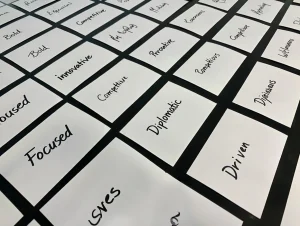When applying for government jobs, many applicants wonder: How is a federal resume different from a regular resume? The truth is, the rules of resume writing change dramatically in the federal hiring process. While most job seekers are familiar with the standard resume format used in the private sector, federal jobs require a specialized document known as a federal resume. At first glance, both documents may seem similar—they summarize your skills, experience, and qualifications—but in reality, they follow very different standards and expectations.
If you’ve been applying for government jobs with a regular resume and haven’t received any responses, it’s likely because your application isn’t meeting federal requirements. This guide will help you understand the key differences between a federal resume and a regular resume, and why adapting your approach is crucial for success.

What Is a Federal Resume?
A federal resume is a detailed document required when applying for jobs within the U.S. federal government. Unlike a regular resume, which is often concise and tailored to private-sector roles, a federal resume must be comprehensive. It provides in-depth information about your work history, qualifications, and achievements, following the guidelines set forth by the U.S. Office of Personnel Management (OPM).
Federal agencies use a hiring platform called USAJOBS.gov, where job seekers must upload and submit resumes that align with federal hiring standards. These resumes are not just reviewed by human recruiters but also evaluated by automated systems that scan for specific keywords and qualifications outlined in the job announcement.
What Is a Regular Resume?
A regular resume, commonly used for private-sector roles, is a concise, one- to two-page document designed to quickly showcase a candidate’s skills, work experience, and educational background. Regular resumes are typically more flexible in terms of format and design. They emphasize brevity, relevant accomplishments, and strong keywords to grab the recruiter’s attention in a matter of seconds.
The key purpose of a regular resume is to get you an interview by highlighting your most relevant qualifications in a visually appealing and easy-to-read format. In contrast, a federal resume prioritizes detail and compliance with strict requirements.
How Is a Federal Resume Different from a Regular Resume?
A federal resume is very different from a regular resume, both in structure and detail. Understanding these differences is key to successfully applying for federal positions. It is important to review the requirements for each type of resume before you begin. You should also tailor your resume to the specific requirements of federal or regular positions to increase your chances of success.
Below, we break down the main distinctions between a federal resume and a regular resume.
1. Length and Level of Detail
- Regular Resume: The general rule for a standard resume is to keep it short—one page for entry-level candidates and no more than two pages for experienced professionals. Recruiters in the private sector often spend less than 10 seconds scanning a resume, so conciseness is crucial.
- Federal Resume: A federal resume is significantly longer, often ranging between 4 to 6 pages, or even more, depending on your experience. This length is not a sign of being verbose but rather a reflection of the detailed requirements federal agencies demand. Each job you’ve held must be described thoroughly, including specific duties, accomplishments, hours worked per week, and salary information.
2. Required Information
- Regular Resume: Focuses on job titles, company names, dates of employment, and a few bullet points describing responsibilities and accomplishments.
- Federal Resume: Requires a wealth of additional details that are not necessary on a regular resume.
3. Format and Structure
- Regular Resume: Can use creative formatting such as columns, charts, or color to stand out, provided it remains professional and ATS-friendly. The structure often includes sections like Summary, Work Experience, Skills, and Education. In the Summary or Skills section, be sure to demonstrate your knowledge relevant to the job. In the Work Experience or Skills section, highlight your abilities and your ability to perform the required tasks through specific examples and achievements.
- Federal Resume: Has a strict structure and is best formatted in plain text to comply with USAJOBS requirements. The preferred structure is:
- Contact Information
- Job Objective or Summary
- Work Experience (with detailed information for each job)
- Education
- Certifications or Licenses
- Additional Skills and Training
- References (optional but often included)
4. Use of Keywords
Federal job announcements include specific qualifications and keywords in the “Duties” and “Qualifications” sections. Federal resumes must be keyword-rich to pass the Applicant Tracking Systems (ATS) used by USAJOBS. Unlike private-sector resumes, which may emphasize concise bullet points, a federal resume often requires full sentences that include relevant keywords to match the job posting.
When preparing your resume, customize it for the specific job you are seeking by including keywords and qualifications that align with the position. Additionally, focus on the most relevant skills and experience, ensuring your resume highlights what is most important for the job.
5. Focus on Core Competencies
In the private sector, resumes often highlight quantifiable achievements—metrics like “increased sales by 30%” or “managed a team of 10 employees.” While federal resumes also value accomplishments, they place greater emphasis on core competencies and skill areas outlined by the OPM, such as:
- Leadership
- Problem-solving
- Teamwork
- Communication
- Technical expertise
For each position, be sure to describe at least one key accomplishment that demonstrates your relevant skill and how it aligns with these competencies.
Applicants must address how they demonstrate these competencies, often using the CCAR method (Challenge, Context, Action, Result).
6. Narrative Style
- Regular Resume: Typically uses short, punchy bullet points that begin with action verbs and focus on measurable achievements.
- Federal Resume: Encourages a narrative approach with complete sentences, detailed examples, and explanations of duties, tasks performed, and results. Clearly describing each task in your work experience helps hiring managers understand how your experience directly relates to the job description, as the hiring manager is the person who evaluates your resume after initial screening.
7. Application Process
- Regular Resume: Usually submitted directly to employers or through third-party job boards like LinkedIn, Indeed, or company websites. Cover letters are often optional but recommended.
- Federal Resume: Submitted through USAJOBS, where the process involves answering job-specific questionnaires in addition to providing a detailed resume. Federal applications may also require supporting documents, such as transcripts, military service records, or SF-50 forms (for current or former federal employees).
8. Evaluation Criteria
Private-sector recruiters quickly scan resumes to find the most qualified candidates. In contrast, federal hiring is governed by strict rules to ensure fairness and equal opportunity. Your federal resume must show that you meet both minimum qualifications and specialized experience requirements as described in the job announcement.
If your resume does not clearly show that you meet these qualifications, your application will be rated as “ineligible,” even if you have the experience.
Why Can’t You Use a Regular Resume for Federal Jobs?
Using a regular resume for a federal job is a common mistake. Federal hiring managers expect detailed information to determine if you meet the strict requirements of the position. A standard private-sector resume, which prioritizes brevity and visual appeal, often fails to provide the depth and structure federal hiring officials need.
For example, a regular resume might list:
Sales Manager, XYZ Company (2018–2022)
- Increased annual sales by 20%.
- Managed a team of 10 sales associates.
While this is great for private-sector jobs, a federal resume would require more context, such as:
Sales Manager, GS-1101-12, XYZ Company, 40 hours/week (2018–2022)
Salary: $75,000/year
Supervisor: John Smith, (555) 123-4567, may contact
- Developed and implemented sales strategies that increased revenue by 20% over four fiscal years, exceeding department goals.
- Supervised and trained 10 sales associates, leading to a 15% improvement in team productivity.
- Collaborated with cross-functional teams to analyze market trends, optimize pricing strategies, and ensure customer satisfaction.
The difference lies in the specificity and structure that federal recruiters require.
How to Write a Strong Federal Resume
If you’re serious about landing a government job, here are some tips to ensure your federal resume meets the mark:
Review your resume carefully to catch any errors and make sure your achievements are clearly presented. This not only strengthens your application but also helps you prepare for interviews, as you’ll be more familiar with your experience and accomplishments.
1. Read the Job Announcement Carefully
Every federal job announcement on USAJOBS provides a detailed description of the required qualifications and specialized experience. Highlight the keywords and phrases used and ensure they appear in your resume, reflecting your experience.
2. Follow the USAJOBS Builder
USAJOBS offers a built-in resume builder that walks you through the required sections. While it might seem time-consuming, it ensures you don’t miss critical information like job series, pay grade, or number of hours worked per week.
3. Be Detailed
Err on the side of providing more detail than less. Clearly describe your roles, responsibilities, and accomplishments for each position. Remember, federal HR personnel often do not assume or infer qualifications—you must explicitly state how you meet each requirement.
4. Use the CCAR Method
When describing your accomplishments, use the Challenge, Context, Action, Result method:
- Challenge: What problem or goal were you addressing?
- Context: What was your environment or role?
- Action: What steps did you take?
- Result: What outcomes or benefits did you achieve?
5. Include Volunteer Work
Unlike regular resumes, federal resumes give weight to volunteer experience, especially if it demonstrates transferable skills relevant to the position. Organizations like AmeriCorps, Peace Corps, or local community service can count toward qualifying experience.
6. Use Plain Language
Avoid jargon or overly technical language unless it is specified in the job announcement. Write in clear, concise sentences that are easy for both automated systems and human readers to understand.
7. Attach Supporting Documents
Many federal jobs require documentation to verify eligibility and qualifications, such as:
- Transcripts (for educational requirements).
- Veterans’ preference documents (DD-214, SF-15).
- Current or former federal employee forms (SF-50).
Failure to provide these documents can lead to automatic disqualification.
Common Mistakes to Avoid When Writing One
Applying for a federal job requires a careful and strategic approach. Even qualified candidates are often disqualified due to simple resume mistakes. Here are some of the most common errors to avoid when creating your federal resume:
- Using a Regular Resume Format: Submitting a one-page resume will almost certainly lead to rejection.
- Failing to Include Required Information: Omitting details like hours worked or supervisor contact information can disqualify your application.
- Not Tailoring to the Job Announcement: A generic resume that doesn’t address specific qualifications is unlikely to succeed.
- Underestimating Volunteer Experience: Many applicants fail to list unpaid work that demonstrates relevant skills.
- Ignoring USAJOBS Questionnaires: Your resume must support the answers you give in the job-specific questionnaires.
When Should You Hire an Expert Resume Writer?
Creating a federal resume can be overwhelming, even for experienced professionals. The strict requirements, detailed formatting, and emphasis on specific keywords often make it challenging to craft a resume that stands out while meeting all federal guidelines. This is where hiring an expert resume writer can make a significant difference.
You should consider working with a professional federal resume writer if:
- You’re new to federal applications: If you’ve only written private-sector resumes, transitioning to the detailed and narrative style of a federal resume can be confusing.
- You’re applying to competitive federal roles: Highly sought-after positions require a resume that is flawlessly tailored to the job announcement and demonstrates all required qualifications.
- You struggle with keyword integration: A professional can ensure your resume is optimized with the right language to pass the Applicant Tracking System (ATS) used by USAJOBS.
- You don’t have time to create a detailed resume: Crafting a 4–6 page federal resume takes hours of research and careful writing—tasks that experts can handle efficiently.
- You’ve been rejected before: If you’ve applied multiple times with no success, a resume writer can pinpoint gaps or errors and create a stronger, more competitive document.
Investing in a certified federal resume writer can increase your chances of getting referred to hiring managers, helping you avoid common pitfalls and present your experience in the best possible way.
Ready to Land Your Federal Job?
Don’t let a poorly crafted resume hold you back. Our expert federal resume writing services are here to help you create a detailed, keyword-optimized resume that meets all federal requirements and stands out to hiring managers. Get started today and take the first step toward your government career success!
Frequently Asked Questions
Do federal resumes require a specific font or format?
While there isn’t a mandated font, it’s best to use clean, professional fonts like Arial, Times New Roman, or Calibri in 11–12 point size. The format should be simple and plain-text friendly to meet USAJOBS requirements and ensure ATS compatibility.
Should I include references on my federal resume?
While not always mandatory, federal resumes often include references—typically 2–3 professional contacts with full names, job titles, phone numbers, and email addresses. Check the job announcement for specific requirements.
Can I use the same federal resume for multiple job announcements?
It’s not recommended. Each federal job announcement has unique keywords, competencies, and qualification requirements. Tailoring your resume for each job increases your chances of making it through the initial screening process.
Are cover letters required for federal jobs?
Not all federal jobs require cover letters, but including one can strengthen your application. A well-crafted cover letter can highlight your most relevant qualifications and show your motivation for the role.
How long does it take to prepare a federal resume?
Because of the detailed information required, a federal resume can take several hours—or even days—to complete, especially if you’re starting from scratch. Gathering information like past salaries, work hours, and supervisor details can be time-consuming.








